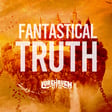
230. Why Do Modern Stories Keep Reversing Heroes and Villains?
Just this month we’ve seen three examples of a polarity shift. Up is down. Water is dry. And heroes are actually villains—while the villains get justified by tragic backstory. How does this happen? In reality and fiction, why do some modern storytellers keep reversing the polarity of heroes and villains?
Special mention
Episode sponsors
- Audio-Epic.com: “1232” audio drama podcast
- Return of the Lost Ones by David Liberto
- Above the Circle of Earth: prebuy this sci-fi
Mission update
- Lorehaven recently reviewed The Chaos Grid as well as Sea and Soul
- Subscribe free to get updates and join the Lorehaven Guild
Concession stand
- Most of what we’re describing is rampant cynicism.
- A lot of what’s driving this trend can be traced to major changes in tabletop games and video games.
- You’ve probably heard this trend play out like so:
- “Ha ha, heroes are actually villains.” Example: The Boys
- “Ha ha, good guys are secretly evil.” Example: The Last of Us
- “Ha ha, religion is an evil control system.” Example: The Front Room
“You cannot go on ‘seeing through’ things for ever. The whole point of seeing through something is to see something through it. It is good that the window should be transparent, because the street or garden beyond it is opaque. How if you saw through the garden too? It is no use trying to ‘see through’ first principles. If you see through everything, then everything is transparent. But a wholly transparent world is an invisible world. To ‘see through’ all things is the same as not to see.”
― C.S. Lewis, The Abolition of Man
- Many simply say, “It’s not fair” that some people win and others lose. Why shouldn’t everyone be equal?
1. Why critics may feel so cynical about heroes
- If no one can possibly be more virtuous than anyone else, then heroes by definition cannot exist.
- Likewise, if heroism is an easy thing, then heroes would be a dime a dozen, instead of rare.
- Humility is the opposite of the armchair quarterback who demonstrates 20/20 hindsight.
- Example: some recent revisionist history that portrays Winston Churchill as a villain
2. How we get heroes: courageously pursue virtue
- A hero doggedly pursues a goal no matter the obstacles or failures.
- Virtue is not always an easy or pleasant task, as it usually involves self-denial and long timescales.
- Examples: the SpaceX astronauts who recently undertook the Polaris Dawn spacewalk mission
The Christian ideal has not been tried and found wanting. It has been found difficult; and left untried.
—G. K. Chesterton
- Although it’s scary for us to reject worldly conformity, we can practice courage.
